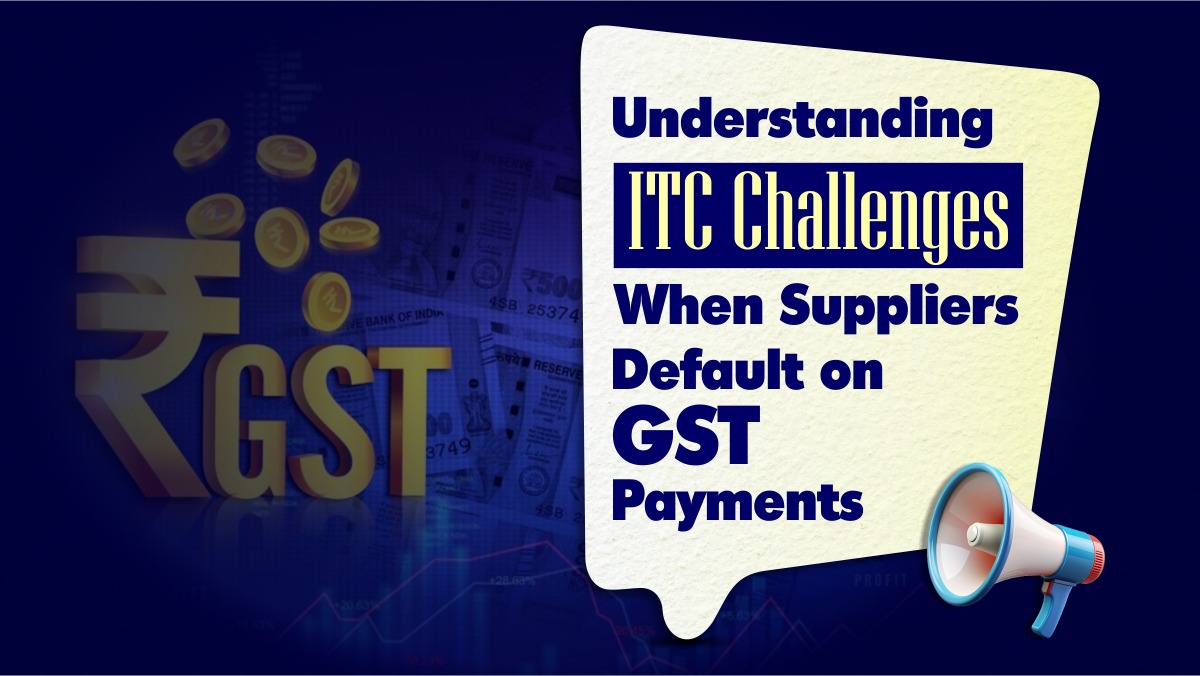
Understanding Input Tax Credit (ITC) and Its Importance
Input Tax Credit (ITC) is a fundamental feature of the Goods and Services Tax (GST) system that allows businesses to claim a credit for the GST paid on purchases made for resale. This mechanism prevents the cascading effect of taxes and ensures that tax is levied only on the value addition at each stage of the supply chain. However, a pertinent issue arises when the supplier fails to deposit the GST collected from the buyer to the government. In such a scenario, the recipient faces uncertainty regarding ITC claims.
What Does Section 16 of GST Laws State?
As per Section 16 of the GST Act, businesses can claim ITC only when specific conditions are met. One critical condition states that ITC can only be availed if the supplier has paid the tax to the government. This means that even if a buyer has paid the GST amount to the supplier, they may not be eligible for ITC if the supplier defaults on their tax payment.
This creates a significant burden on buyers, as they must ensure their suppliers comply with tax regulations. Otherwise, they risk losing their ITC claims despite fulfilling their tax obligations.
The Role of Section 38 and GSTR 2 in ITC Claims
Earlier, Section 38 of the GST Act, read with the now-suspended GSTR 2 return, offered a safeguard for recipients. Under this provision, if a supplier fails to deposit GST, the buyer could still report the invoice and secure their ITC claim. This meant that buyers who had duly paid GST were not penalized for the supplier’s non-compliance.
However, with the suspension of GSTR 2, businesses have lost this protective mechanism. Now, ITC claims are directly dependent on the supplier’s tax compliance, making it imperative for buyers to conduct due diligence before entering into transactions.
Example: How This Impacts Businesses
Consider a business purchasing goods worth ₹100, with an 18% GST component, bringing the total to ₹118. The buyer pays the supplier ₹18 as GST, expecting to claim ITC. If the supplier fails to remit this tax to the government, the buyer is denied the ITC claim.
The core issue here is that the government still retains the right to recover the unpaid tax from the supplier. Thus, the burden should not fall on the buyer, who has already discharged their GST liability.
Implications of This Issue on Businesses
- Financial Burden on Buyers – Businesses must conduct extensive checks to ensure suppliers are compliant, which adds to administrative costs.
- Trust Deficit in Supplier Relations – Companies may hesitate to work with new or small vendors due to the risk of ITC denial.
- Impact on Working Capital – Denied ITC claims can lead to liquidity issues, especially for MSMEs.
- Legal and Compliance Risks – Buyers must monitor suppliers’ tax filings to avoid future disputes and financial setbacks.
A Call for Reform: Implementing GST in a Holistic Manner
The current state of affairs suggests that GST laws must be implemented comprehensively. If Section 16 is enforced strictly, then protective measures like Section 38 and GSTR 2 should also be reinstated. This will ensure a fairer system where taxpayers are not penalized for non-compliance with others.
How Businesses Can Safeguard Themselves?
Given the legal constraints, businesses can adopt the following measures to mitigate risks:
- Verify Supplier Compliance – Use the GST portal to check whether suppliers are regularly filing their returns and depositing tax.
- Use Vendor Agreements – Ensure contracts include clauses that hold suppliers accountable for GST compliance.
- Regular Reconciliation – Compare purchase records with the GSTR-2A auto-populated data to detect discrepancies early.
- Opt for Reliable Suppliers – Prefer working with established vendors with a proven tax compliance record.
Conclusion
The denial of ITC due to supplier non-compliance is a pressing issue that affects businesses across industries. While the government aims to curb tax evasion, an unfair burden should not be placed on tax-compliant buyers. A balanced approach where both Section 16 and protective measures like Section 38 work in tandem will create a more robust and equitable GST framework. Until then, businesses must exercise due diligence and adopt preventive measures to safeguard their ITC claims.
